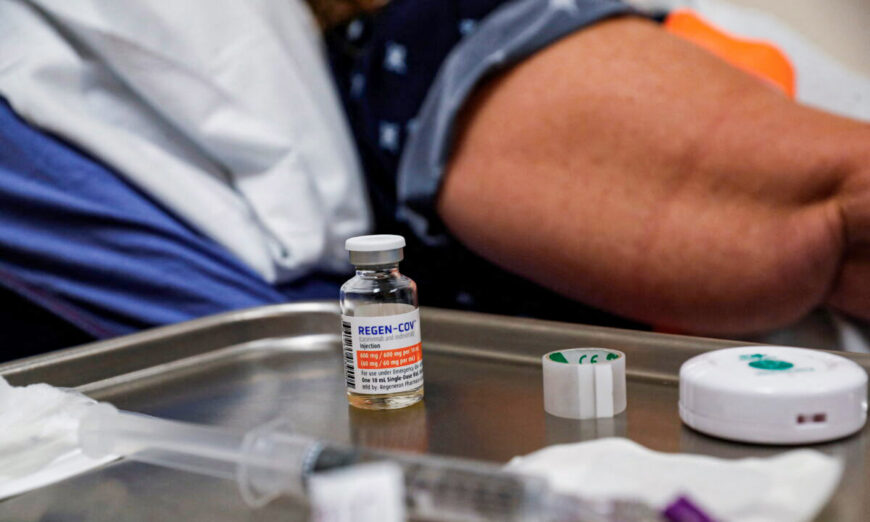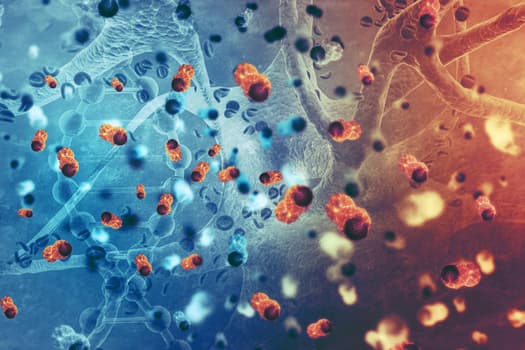Small Rectal Cancer Study Has Remission in Every Patient
Written by Carolyn Crist cited WebMD
Every Patient in Remission
June 6, 2022 – A small clinical trial with 12 rectal cancer patients found remission in 100% of them, according to a new paper published in TheNew England Journal of Medicine.
All the patients took dostarlimab, a monoclonal antibody, every 3 weeks for 6 months. During follow-up, the cancer had disappeared on MRI scans, PET scans, biopsies, endoscopic tests, and physical exams.
“I believe this is the first time this has happened in the history of cancer,” Luis Diaz Jr., MD, the senior study author and an oncologist at Memorial Sloan Kettering Cancer Center in New York City, told The New York Times.
The study, which was sponsored by the drug company GlaxoSmithKline, was presented Sunday at the annual meeting of the American Society of Clinical Oncology. The study authors reported several surprises: None of the patients needed other treatments associated with rectal cancer, such as life-altering surgery or chemotherapy, and none had clinically significant complications.
“There were a lot of happy tears,” Andrea Cercek, MD, the lead study author and an oncologist at Memorial Sloan Kettering Cancer Center, told the newspaper.
June 6, 2022 – A small clinical trial with 12 rectal cancer patients found remission in 100% of them, according to a new paper published in TheNew England Journal of Medicine.
All the patients took dostarlimab, a monoclonal antibody, every 3 weeks for 6 months. During follow-up, the cancer had disappeared on MRI scans, PET scans, biopsies, endoscopic tests, and physical exams.
“I believe this is the first time this has happened in the history of cancer,” Luis Diaz Jr., MD, the senior study author and an oncologist at Memorial Sloan Kettering Cancer Center in New York City, told The New York Times.
The study, which was sponsored by the drug company GlaxoSmithKline, was presented Sunday at the annual meeting of the American Society of Clinical Oncology. The study authors reported several surprises: None of the patients needed other treatments associated with rectal cancer, such as life-altering surgery or chemotherapy, and none had clinically significant complications.
“There were a lot of happy tears,” Andrea Cercek, MD, the lead study author and an oncologist at Memorial Sloan Kettering Cancer Center, told the newspaper.
Cancer Trial Using Monoclonal Antibody Finds Remission in Every Patient: Report

A cancer trial has reportedly become the first in the world to completely remove the disease in every patient, according to a study published on June 5 in The New England Journal of Medicine.
Doctors have been unable to see any evidence of tumors among the patients when using magnetic resonance imaging, fludeoxyglucose F 18 injections, physical examinations, or endoscopic evaluations, according to researchers.
The patients also continued to show no signs of cancer during follow-ups ranging from six months to 25 months and haven’t had to undergo surgery or receive radiation and chemotherapy.
“No adverse events of grade 3 or higher have been reported,” the study authors noted.
Specifically, the rectal cancer patients were given dostarlimab, a monoclonal antibody, every three weeks for six months. The patients had mismatch repair-deficient stage two or three rectal adenocarcinomas, a type of cancer.
The median age of the patients enrolled was 54 years old and 62 percent of them were women.
Typically, such cancer patients would have needed to undergo often debilitating treatments such as chemotherapy, radiation, or surgery, and in extreme cases be fitted with colostomy bags.
However, after taking dostarlimab, which is sold under the brand name Jemperli, no cases of progression or recurrence were reported in the patients who underwent the study.
Dostarlimab is already approved by the U.S. Food and Drug Administration for use in the treatment of adult patients with mismatch repair-deficient recurrent or advanced solid tumors. Rectal cancer is an off-label use, according to Medscape.
According to drugs.com, the cost of Jemperli intravenous solution (500 milligrams/10 milliliters) is around $11,201 for a supply of 10 milliliters.
The results of the study were also presented at the American Society of Clinical Oncology 2022 annual meeting.
“Mismatch repair-deficient, locally advanced rectal cancer was highly sensitive to single-agent PD-1 blockade,” the authors wrote, acknowledging that extended follow-up is needed to assess the duration of response.
Dr. Luis A. Diaz Jr. of Memorial Sloan Kettering Cancer Center, author of the study, told The New York Times that he believes this is the “first time this has happened in the history of cancer.”
“The implications for quality of life are substantial, especially among patients in whom standard treatment would affect child-bearing potential [and] given that the incidence of rectal cancer is rising among young adults of childbearing age, the use of PD-1 blockade to eliminate the need for chemoradiotherapy and surgery may confer a particular benefit in that age group,” the authors wrote.
The study was supported by the Simon and Eve Colin Foundation, GlaxoSmithKline, Stand Up to Cancer, Swim Across America, and the National Cancer Institute of the National Institutes of Health.
About one-third of the 145,000 cases of colorectal cancers diagnosed each year are found in the rectum, according to the Cancer Treatment Centers of America, and the risk of this specific type of cancer increases with age, although men are typically at a higher risk than women.


